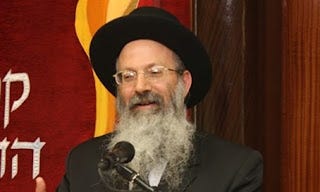Rav Melamed on Torah/Mada/Kollel/Working

Previously, I have sung the praises of Rav Eliezer Melamed and his book series Peninei Halacha. In this post, I would like to discuss his statements regarding Torah study. These are in the volume Likkutim I. (Incidentally, as others brought to my attention, almost all of Rav Melamed's writings are freely available online, as well as in free apps for Android and iPhone.)
Rav Melamed begins his discussion on the mitzvah of learning Torah with some mystical statements about its importance and function which are certainly at odds with the rationalist perspective. However, as one continues, one sees that in practice, his approach plays out in a very rationalist way.
Rav Melamed discusses the value of secular fields of knowledge. He notes that they are not only important in a practical sense, but that they also possess innate value, which is why one pronounces a beracha upon seeing a non-Jewish great scientist. Rav Melamed further argues that there is no sin of bittul Torah involved in studying such science, because it is also part of Divine wisdom and thus also a form of Torah, albeit of a lesser level.
Next, Rav Melamed discusses the crisis that modernity brought to the Jewish People, and the different approaches towards secular knowledge - the Torah im derech eretz approach of Rav Hirsch, and the Torah-only approach of others. While, he says, it is hard to say which was more successful, he personally advocates for an approach that includes secular knowledge. He views this as part of appreciating God's greatness, being a kiddush Hashem to the rest of the world, and enabling people to obtain professional careers which are honorable and which enable one to provide for one's family.
Finally, with regard to yeshivah/kollel/work, Rav Melamed's statements are most refreshing. When I was doing my own research into the history of rabbinic views on this topic, I discovered that classically, there was almost always a distinction drawn between learning Torah and teaching Torah - a differentiation that often seems to have been lost in contemporary discussions of this topic. But Rav Melamed, I was happy to see, stresses this difference. He notes that while it is important for everyone to gain a basic knowledge of Torah, which the community should fund, this should go no further than a few years in yeshivah. Once they have acquired an adequate basic general knowledge, they should study towards a career, so that they can be self-supportive. Only those who are directly studying to become rabbis or educators may continue their studies and be supported by the community, since they are dedicating themselves to a path of serving the community. For others, it is forbidden to continue their Torah study and receive communal support. (In a footnote, Rav Melamed adds that if there are those volunteering to support them, they may accept it, but he adds that following Rambam, it is not middat chassidut to do so.)
Thus, for all Rav Melamed's opening statements about the mystical significance of Torah study, the bottom line is that, unlike Rav Chaim of Volozhin, and in line with the classical authorities, Rav Melamed does not rate Torah study as contributing to the community such that it deserves communal support. Only teaching Torah, and training towards that, is a service to the community.


